What are Rights of Shareholders under the Company Law?
What are the rights of shareholders in a company? This question comes to mind when one thinks of investing in the share stock of a company. You may be aware that a company has a separate legal personality apart from its shareholders. The shareholders do not have any direct role in the management of the company, however, being stakeholders in the company they have certain rights. In this article, we will learn who is a shareholder, how he is different from a member, and what rights and obligations shareholders may have.
Who is a Shareholder?
The company law in Pakistan does not define the word ‘shareholder. However, a shareholder may be defined as a person (natural or legal) who owns company shares. A person may become a shareholder by allotment, transfer, or transmission of shares.
Who is a member of a Company?
A member on the other hand, as defined by the law, is a person who:
- In case of a company having a share capital, has been allotted shares in a company, or who has become the holder of shares of any class or kind; or
- In case of a company not having a share capital has agreed to become a member of the company.
in both cases, the name of such a person must be entered in the register of members of the company. On the other hand, subscribers to the memorandum of association of a company are deemed to have agreed to become members upon registration of the memorandum and incorporation of the company.
Difference between Member and Shareholder
Though the terms “member” and “shareholder” are often used synonymously, yet they are different. For a person to become a shareholder, allotment or purchase of shares from another shareholder is enough. However, a person may not be treated as a member of the company until his name is entered in the register of members of the company. For example, if a shareholder (whose name is entered as a member) sells his shares to another person, he will be treated as member until his name is replaced with the name of the purchaser in the register of members.
In case a person subscribes to shares of a company, he may not be treated as a shareholder until the shares are actually allotted to him. After allotment, he will not be a member until his name is entered in the register of members.
On the other hand, in case a of transmission of shares (by operation of law like devolution of shares to legal heirs of a deceased member), the legal heirs may be treated as shareholders by operation of law and will be entitled to all rights as shareholder. However, they will not the treated as members until their names are entered in the register of members.
Rights of Registered Shareholders (Members)
As mentioned above, the shareholders are separate from the company in which they are shareholders. The management of the company is in the hands of the board of directors and the shareholders cannot take part in the management except through general meetings under the law. The company law (that permits the creation of a company) provides certain rights to shareholders.
GENERAL RIGHTS
Overview
Right to Receive Share Certificates
A shareholder has a right to receive certificates of shares allotted to him. The company is bound to issue and deliver the share certificates to the registered address of the shareholder within 30 days of the allotment.
Right to Receive Duplicate Shares
In case a share certificate has been lost or destroyed and it is proved, the shareholder may apply for the issuance of duplicate shares. A shareholder may also apply for a duplicate share certificate if the certificate is defaced, mutilated, or torn by surrendering the existing certificate to the company.
Upon receiving an application, in either case, the company may after inquiry issue the duplicate certificate. The certificate will be issued on terms and conditions deemed necessary by the company. The company may charge a fee and the actual cost of the inquiry.
If there is no reasonable ground to refuse the application, the company will have to issue duplicate shares within 30 days of the application by a shareholder.
Right to Transfer Shares
A shareholder has a right to transfer his shares to any other person at any time, subject to completing the formalities for transfer. Shares in a public company may be easily transferred but in the case of a private company, there are some restrictions on the transfer of shares.
If a shareholder applies for a transfer of shares, the directors may not refuse the transfer without any reasonable ground. The shares transfer process must be completed within 45 days of the application.
Right to the Offer of Shares at the Time of Further Issue of Shares
A shareholder has the first right to subscribe to the shares (right issue) issued by the company. Whenever a company raises further capital for business expansion, the company is bound to first offer new shares to the existing shareholders. If the existing shareholders choose not to subscribe to those new shares then the company can offer those shares to outsiders (right of first refusal). The existing shareholders are entitled to new shares in proportion to their existing shareholding. For example, a shareholder holds 10 percent of shares in the company and the company wants to issue 500 new shares. The shareholder will have a right to purchase 50 shares which are 10 percent of 500 shares.
Right to Receive Dividends
As a shareholder, you will have a right to share the earnings/profit of the company. This profit distribution is known as a dividend which may vary from time to time based on the performance of the company during an accounting period. However, the dividend is equally distributed on a per-share basis to each shareholder. However, if you have preference shares, you may be entitled to a fixed dividend, as per agreed terms and on priority.
The board of directors recommends the dividend and presents the proposal in the general meeting. The shareholders in their meeting may approve or decrease the payout but can not increase the payout beyond the recommendation of the board. The good news is that once a dividend is declared, the company cannot withhold it and it must distribute it within 15 working days from the date of declaration of dividend.
Right to Information (Inspection and Copy)
A shareholder (if he is a member i.e. his name is entered in the register of members) has a right to information about the company under the law with certain limitations. A shareholder has a right to inspect the following registers and other record:
- Register of members
- index of members
- register of debenture holders
- index of debenture holders
- Register of charges and mortgages
- Register of directors and other officers
- register of transfers of shares
- Contract of employment with directors
- books containing the minutes of proceedings of the general meetings
- Disclosure to members of directors’ interest in contract appointing chief executive or secretary
Every company is bound to allow the (shareholders/members inspection of the registers, indexes, and other records with reasonable restrictions for at least 2 hours on each working day. The company may not charge any fee for inspection. However, if a shareholder wants to get a copy of the record maintained by the company, the company may charge a reasonable fee.
A shareholder may request inspection or a copy of the record by filing an application and the company must allow inspection and provide a copy of the record within 7 days.
Right to Apply to Court for Rectification of Register of Members
If the name of any persona is fraudulently or without sufficient cause entered or omitted from the register of members, a member may apply to the court for rectification of the register. A shareholder or any aggrieved person may also apply to the court if a default is made or an unnecessary delay occurs in entering or deleting a name. The court after considering the matter accepts or rejects the application. On allowing the application, the court may also allow costs and damages incurred by the aggrieved party.
Right to Protection
Though the rights granted under the law and the articles of association are protected. However, the law allows variation of rights of the shareholders including abrogation, enhancement, and revocation of rights. However, the rights of a particular class of shareholders may not be changed without their consent. Change of rights of shareholders of a particular class requires approval of resolution by at least 75 percent of voters of that particular class and not otherwise.
The shareholders (at least 10 percent) whose rights are changed may apply to the court for an order canceling the resolution. The court upon satisfaction that some facts affecting the decision on resolution had been withheld, may pass a cancellation order.
RIGHTS RELATED TO MEETINGS
Right to Receive Notice of Meetings
Every registered shareholder/member has the right to receive a notice of general meetings of the company. If the meeting is an Anual General Meeting (AGM), the members must be supplied a copy of the financial statements along with the notice of the meeting. And if the meeting is an extraordinary general meeting (EGM) or a special business (special resolution) is to be transacted in the meeting, a statement of material facts and the draft resolution will also be attached with the notice.
Right to Attend General Meetings
Every member shall have the right to attend an AGM or EGM of the company and vote on any resolution presented for the approval of the members. A member may attend the meeting;
- In-person;
- Though proxy; or
- By video link if facilitated.
The members shall be allowed to vote on any resolution through h postal ballot (by post or any electronic mode).
Right to Call EGM of the Company
If the shareholders want the company to hold an EGM for a special matter, they may send a requisition, signed by members holding at least 10 percent stake. The requisition will state the objects of the meeting and must be delivered at the registered office of the company.
If the directors of the company fail to proceed within 21 days, the requisitionists may call the meeting. The meeting call by the requisitionists will be as valid as any other duly convened meeting and the company will be bound to reimburse the expenses. Any such meeting must be held within 90 days from the date of requisition.
Right to Propose Agenda Items and Special Resolutions
The shareholders of a company have the right to proposed any agenda item to the board of directors which needs consideration by the shareholders in the general meeting. To propose an item on agenda list, at least 5 percent of the shareholders must give notice of such resolution to be included in the agenda.
Right to Apply to the Commission to Call Overdue Meetings of the Company
If the company fails to call any of the general meetings within the prescribed time, a shareholder may apply to the Commission for direction for calling the meeting. The Commission will issue a direction to the company for holding the meeting with specific instructions for calling and conducting the meeting.
Right to Contest for Election to Board of Directors
As a shareholder in a company you have the right to contest for the election of the board of directors, unless you are disqualified or ineligible under the law. When the company issues a notice of the general meeting in which the election is to be held, you can communicate your intention to contest the election.
Right to Elect or Remove Directors
Apart from the right to contest the election, a shareholder has the right to vote for the election or removal of a director(s). Being a stakeholder, voting in the general meeting is the power of a shareholder to elect the most suitable persons to run the company. A director elected in the AGM will hold that office for 3 years, unless he resigns, is removed, or is disqualified.
If a director is found to be working against the interest of the company or the shareholders, you have the right to vote in favour of the resolution for removal.
Right to Appoint Auditors and Fix Their Remuneration
Like every stakeholder in a business, a shareholder would like to know how good the company in which he is a shareholder is doing. To monitor the performance of the company, the law requires to appoint auditors. Being a stakeholder, a shareholder will have the right to appoint the auditors of the company in the general meeting. Shareholders will also have the right to fix the remuneration of the auditors.
OTHER RIGHTS
Right to Apply to Court to Declare the Election of Directors as Invalid
Sometimes shareholders may feel that there has been a material irregularity in the election of directors. In such a case shareholders (holding at least 10 percent of shares in the company) or other shareholders holding a 10 percent stake) may apply to the court for declaring the election invalid. To file the application, you must act within 30 days of the election, otherwise, your application may be rejected. The court after hearing the parties and satisfying itself may declare the election of all or one or more directors as invalid.
Right to Apply for Investigation into the Affairs of the Company
If the shareholders suspect some irregularity or mismanagement in the company, they may file an application to the Commission. Such an application must be signed by at least 10 percent of stakeholders. The officer appointed by the Commission may after investigation submit its report to the Commission for appropriate action.
Right to file a Petition to Court Complaining Oppression and Mismanagement
The shareholders holding not less than 10 percent share in a company may file a petition to the court if the affairs of the company are:
- being conducted, or are likely to be conducted, in an unlawful or fraudulent manner:
- being conducted in a manner not provided for in its memorandum;
- being conducted in a manner oppressive to the members or any of the members; or
- being conducted in a manner that is unfairly prejudicial to the public interest.
The may make an appropriate order keeping in view the interest of the shareholders.
RIGHTS IN CAES OF WINDING UP
Right to Residual Assets of the Company
If a company goes in winding up, the shareholders have the right to receive the residual assets of the company. In case of winding up, the assets of the company are liquidated and all the liabilities of the company are discharged. After discharging the liabilities of the company, the remaining assets are distributed among the shareholders proportionate to their shareholding in the company.
Conclusion
The shareholders in a company have certain rights related to obtaining information, participating in the general meetings, appointment and removal of directors, appointment of auditors, and filing complaints to the Commission or court. These rights are protected and may not be varied without their express consent.




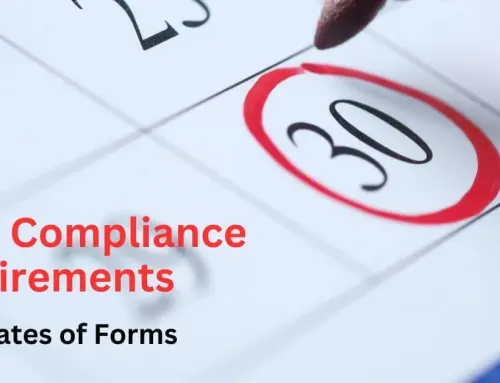





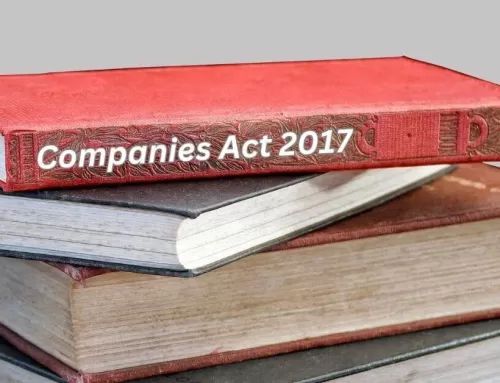








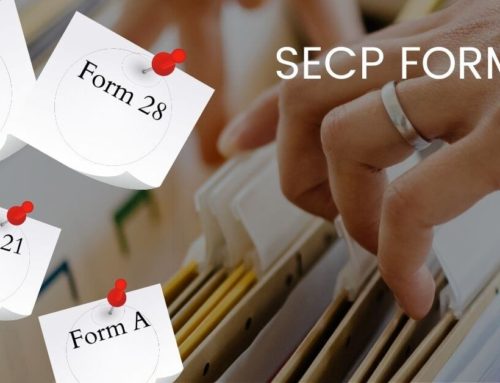


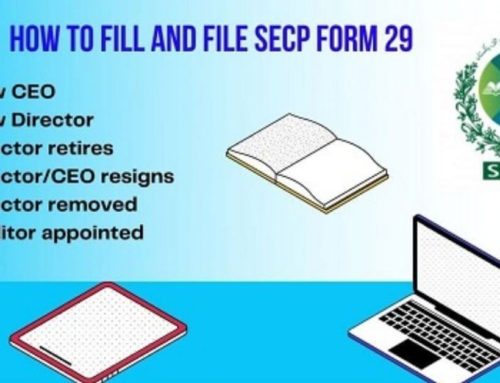




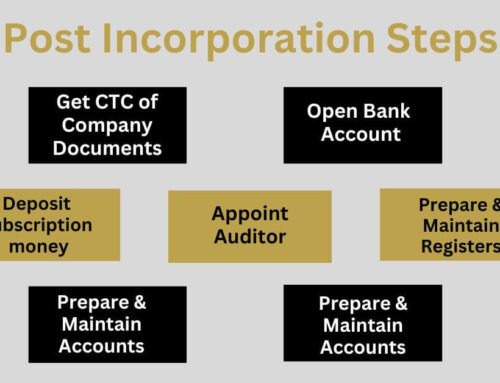

Leave A Comment